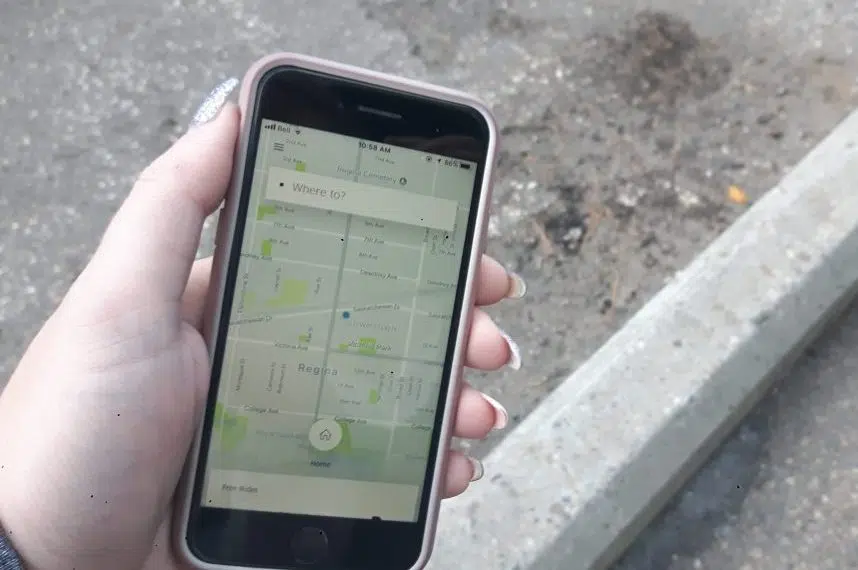Legislation has been introduced by the Wall government that will allow ride sharing companies to help establish their businesses in Saskatchewan.
That has opened the door for at least one company to get the wheels moving on expanding into the province.
“We’re hopeful to be in Saskatchewan as soon as possible,” said Ramit Kar, general manager for Uber Western Canada.
The provincial government revealed in October’s throne speech law would be coming in this regard, not only to give people another transportation option but to also provide another choice to get home safely after drinking.
Kar said based on their feedback, the public wants another option. He added they looked at what the company called “eyeballs”, which is the number of people who have opened up the app.
“The appetite is strong,” he said. “We keep getting messages from potential riders and drivers around the province to say ‘I want this (as) I’ve tried it (when) I’ve been travelling around the world and I’d love for this to be an option here at home.'”
Kar said they would definitely set up in Regina and Saskatoon initially, but added they’d like to be everywhere.
Introduced Thursday, the Vehicles For Hire Act sets out a number of items for what the government is calling “transportation network companies”.
These companies must file written evidence of a motor vehicle liability insurance policy with a minimum limit of $1 million. The company must also insure each vehicle used, under The Automobile Accident Insurance Act. Mandatory criminal record checks are required for drivers. As well, drivers will need a special class of license.
While the legislation deals primarily with insurance and licensing, it would still be up to cities and towns to develop their own municipality-specific bylaws to govern ride sharing companies.
“We believe, from our legislation, it will create a fair and level playing field. What happens in the municipalities is entirely up to them,” said Joe Hargrave, minister responsible for SGI. “The cities and the municipalities will decide how it works for each individual ride share company and the taxis.”
Hargrave said the insurance format will work out based on the number of kilometres the ride sharing driver records. He admits it’ll be different than taxis.
On average across Canada, Kar said 50 per cent of Uber drivers are behind the wheel working less than 10 hours a week. With so many drivers working part-time versus full-time or 40 hours a week, Kar indicated it makes sense to have insurance that’s purpose-built for their industry.
Both government and MADD Canada believe this newly introduced legislation will eventually help bring down impaired driving numbers in the province.
“Uber and Lyft and other ride sharing options are just another way to get home safe at the end of a night,” said Michelle Okere with MADD’s Saskatchewan chapter.
However, the opposition NDP would like to see evidence around whether these sorts of ride sharing services actually help lower drinking and driving.
“We support this bill going to committee and would like the ability to call witnesses so that we can make sure that we’re making decisions based on facts,” said Regina Lakeview MLA Carla Beck.
She said they wouldn’t oppose measures that would bring impaired rates down, but wants to make sure that’s done on fact and research instead of anecdote.











